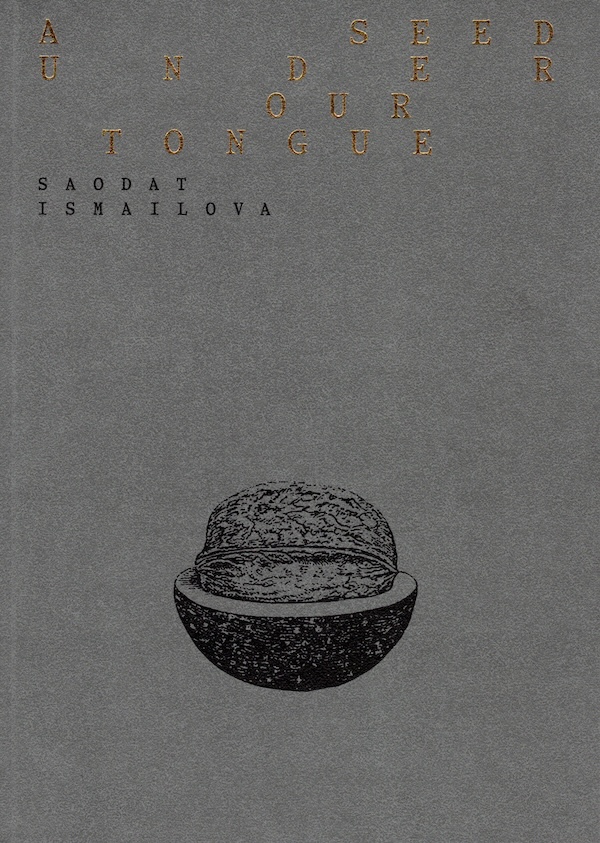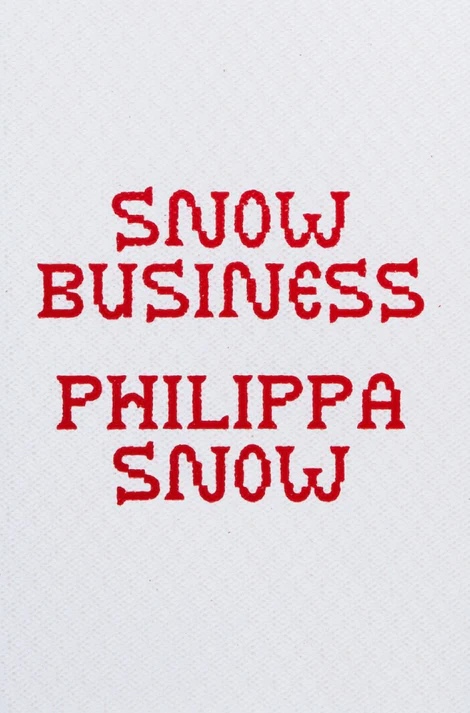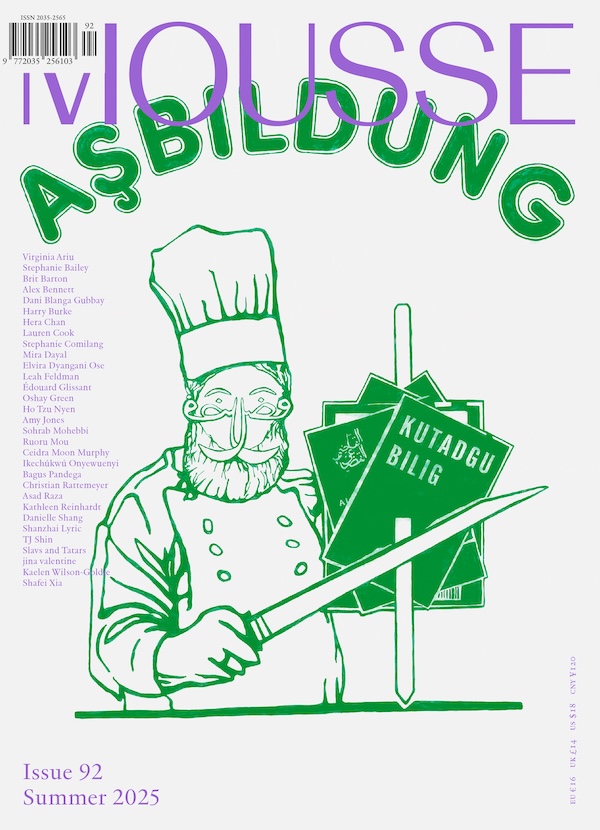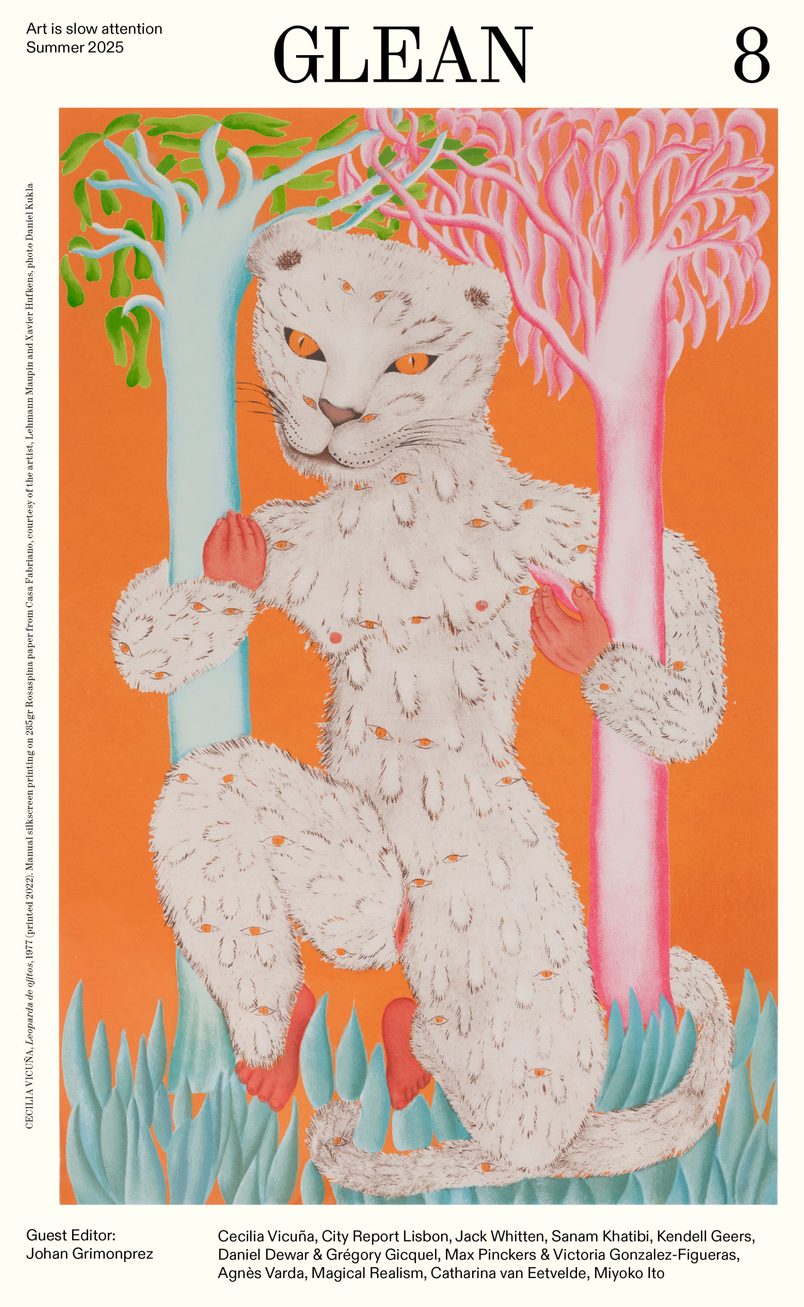Contemporary Art
Contemporary Art

A Seed Under Our Tongue
Set in various Uzbek landscapes spanning time and place, Ismailova's films weave a storied tapestry of ancestral folklore, traditional craft and colonial resistance. By Saodat Ismailova, with Roberta Tenconi, Erika Balsom, Marcella Lista, Dilda Ramazan and Rolando Vázquez.
Uzbek artist Saodat Ismailova (born 1981) is part of the first generation of Central Asian filmmakers following the collapse of the Soviet Union. Her films emphasize long shots that evoke the aesthetics of slow cinema, often combined with archival footage and installed within textile sculptural elements drawn from vernacular traditions, as in the exhibition at Pirelli Hangar Bicocca in Milan, which this volume refers to. Exploring the collective memories of her home region, Ismailova interweaves myths with personal dreams to address social issues such as women's emancipation, identity and the colonial past.

Snow Business
A collection of Philippa Snow's most celebrated writings, articulating with majestic precision the thorny, unbreakable bond between mass media, popular culture and art.
Snow Business marks Philippa Snow's emergence as one of the twenty-first century's greatest cultural critics. From the 2000s into the 2010s, reality television and "second-screen media," designed to play in the background while we look at phones, have proliferated, inaugurating the dumbient age. Celebrities have never been more ordinary; there have never been so many ordinary people who are celebrities.
A collection of her writing from the last half-decade, Snow Business articulates with majestic precision the thorny, unbreakable bond between mass media, popular culture and art. The memoirs of Pamela Anderson and the Kardashian sisters are just as worthy exemplars of "autofiction" as the writing of Olivia Laing and Annie Ernaux; Spring Breakers has succeeded in updating The Great Gatsby; and we are still afraid of Francis Bacon.
Snow has no interest in distinctions of high and low culture. If masterpieces of fiction, painting and cinema reflect back to us some vital and mysterious part of ourselves, mass-distributed popular culture does the same thing, and often with greater clarity and violence—if we are only brave enough to look. Fortunately, Snow does the looking for us.
Alongside her essays are also works of fiction, vignettes whose protagonists are actors, singers, child stars. These are strange, sometimes conspiratorial, and often nightmarish. Just as Snow Business can describe culture with stunning clarity, it can inhabit culture's moving parts, making it again something indescribable, a sensuous vision, a complete fever dream.
Philippa Snow is a writer whose work has redefined contemporary criticism through her analysis of popular culture, art, and media. Her work regularly appears in the Los Angeles Review of Books, ArtReview, The New Republic, The Nation, The White Review, and the Financial Times. She is the author of Which As You Know Means Violence (Repeater, 2022), Trophy Lives (Mack, 2024), and It's Terrible the Things I Have to Do to Be Me (Virago, 2025). Through her keen examination of reality television, celebrity culture, and high art, Snow illuminates the increasingly blurred boundaries between popular entertainment and artistic expression in the twenty-first century.

Mousse #92
Regions surface often in this issue—across arts, tales, and gatherings of individuals and meanings—as a possibility to bypass the borders of nation-states and the meta-geographies of colonial modernity.
Slavs and Tatars; Hera Chan on Stephanie Comilang; Stephanie Bailey on Ho Tzu Nyen; Drifting into the Atmospheric by Sohrab Mohebbi; Lauren Cook contributes nine newly commissioned note-like fiction pieces; Asad Raza on Édouard Glissant; Mira Dayal in conversation with Shanzhai Lyric, TJ Shin, and jina valentine; Temporary Communities, Four Points on Radically Public Institutions by Elvira Dyangani Ose; A Signature Truer Than the Name by Dani Blanga Gubbay; tidbits: Ruoru Mou by Amy Jones; Virginia Ariu by Brit Barton; Bagus Pandega by Harry Burke; Ceidra Moon Murphy by Alex Bennett; Oshay Green by Ikechúkwú Onyewuenyi; Shafei Xia in conversation with Danielle Shang; books by Christian Rattemeyer; Guest Design: Lamm & Kirch.
This issue comes with different covers, randomly distributed.
Mousse is a bimonthly contemporary art magazine. Established in 2006, Mousse contains interviews, conversations, and essays by some of the most important figures in international criticism, visual arts, and curating today, alternated with a series of distinctive articles in a unique tabloid format.

GLEAN 8 - Summer 2025
Contributions by: Cecilia Vicuña, City Report Lisbon, Jack Whitten, Sanam Khatibi, Kendell Geers, Daniel Dewar & Grégory Gicquel, Max Pinckers & Victoria Gonzalez-Figueras, Agnès Varda, Magical Realism, Catharina van Eetvelde, Miyoko Ito.
GLEAN is a Brussels-based magazine for contemporary art with quarterly publications in both English and Dutch.

De-/Anti-/Post-colonial Feminisms in Contemporary Art and Textile Crafts
Twelve essays discussing De-/Anti-/Post-colonial Feminisms in contemporary art and textile craft. This book discusses the theoretical problems of each of these 3 approaches and each author in the book takes a different perspective on the relationships between them. These differences matter. The authors come from France, Sweden, USA (Chicano/First Nation/Black American communities), India, South Africa, The Netherlands, Pakistan, India and UK. They discuss a wide range of practices from contemporary women artists, independent teaching initiatives, experimental film and its histories, avantgarde theatre and women's craft practices in rural communities in conflict areas.